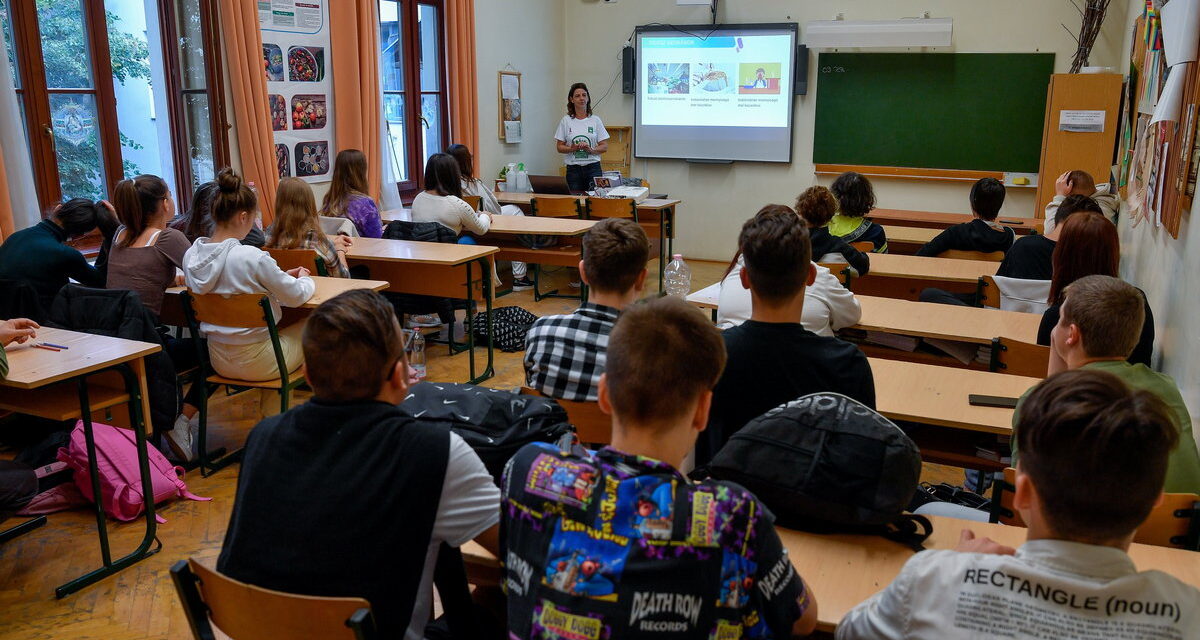While the average results in mathematics and reading comprehension of the OECD countries, including the "model countries" in education, significantly worsened compared to the previous measurement in 2018, there was no significant change in the case of Hungary, emphasized the President of the Education Office on Tuesday at the press conference presenting the latest results of the PISA measurement.
Sándor Brassói said: the OECD, which brings together the world's most developed countries, published on Tuesday the results of the international PISA (Programme for International Student Assessment) measurement conducted in the spring of 2022 with the participation of 81 countries. The national organizer of the measurement was the Office of Education (OH).
The OH president stated that the "very important insight" of the examination showing the reading comprehension and mathematical and natural science skills of 15-year-old students. He said:
there was a very big decline in countries considered to be model countries in education, such as Iceland, Norway, the Netherlands, and even Finland, the "world's top student". However, in Hungary, despite the epidemic and the difficult economic situation, it was possible to maintain and even somewhat improve the results,
the students also accepted the digital transition with success, even the proportion of poorly performing students decreased - added Sándor Brassói.
He explained that although the measurement is usually organized every three years, due to the Covid epidemic, it took place later, and it took place on a completely digital basis, with, as usual, serious quality assurance. The results confirmed what the experts feared:
education systems were affected during the pandemic, which reduced the performance of students worldwide, many were left behind due to education outside the classroom
said the president of OH.
Gábor Kristóf Velkey, head of the OH's public education analysis department, announced that the 2022 PISA survey took place with the largest participation so far, with 37 OECD member countries and 44 partner countries participating. In Hungary, 6,198 students from 270 educational institutions completed the tests.
In mathematics, the average result of students from OECD countries was 472 points, Hungarian students 473 points; in science, the OECD average result is 485 points, Hungarian students' 486 points, in reading comprehension the OECD average is 476 points, the Hungarian result is 473 points
- explained the head of department.
He reported that in mathematics six East Asian countries - Singapore, Macau-China, Taiwan, Hong Kong-China, Japan and the Republic of Korea - achieved better results than all other participating countries, and the performance of Estonia and Switzerland stands out among the European countries. The six best performing countries in reading comprehension are Singapore, Ireland, Japan, the Republic of Korea, Taiwan and Estonia. In science, Singapore, Japan, Macao-China, Taiwan, the Republic of Korea and Hong Kong-China proved to be the most successful, and among the European Union states, Estonia.
Kristóf Velkey also touched on the fact that the PISA test places students' results on ability scales; the EU's objective is that the proportion of students who do not reach the 2nd skill level, which is considered the basic level, falls below 15 percent in all three measurement areas. In mathematics, the proportion of those who reached the 2nd ability level was now 68.9 percent on OECD average, the Hungarian result is 70.5 percent, the average for reading comprehension is 73.7 percent, in Hungary 74.1 percent, and the same pair of ratios for science is 75.5 and 77.1 percent .
The data of the PISA measurement show that we perform at a higher level compared to the gross national product per capita
- highlighted the head of department. He also said that the Hungarian ESCS index (economic, social and cultural status index), which shows the effect of family background on results, is the same as the OECD average.
Sándor Brasói also pointed out that, during the survey, a higher proportion of Hungarian students than the OECD average (76 percent), 81 percent, admitted that they easily make friends at school, and roughly the same number feel that they belong to the community.
Students' satisfaction with their lives has deteriorated in many countries in recent years,
in OECD countries, 16 percent of students in 2018 and 18 percent in 2022 were not satisfied with their lives. In the case of Hungary, the opposite trend was observed, in 2022 13 percent of Hungarian students were not satisfied with their lives, in 2018 it was still 16 percent, explained the president of the OH.
He noted: only seven percent of Hungarian students do not feel safe on the way to school, five percent in the classroom and eight percent in other rooms of the school, these are one or two percent lower than the OECD average.
MTI
Photo: MTI Zsolt Czeglédi













